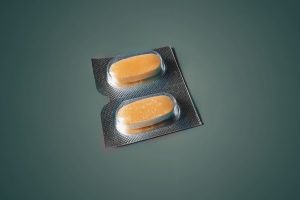Every season brings its own set of seasonal ailments, and the summer months are no exception. The changing weather can make us feel off, from intense sun and pollen to humidity and sweat, leading to various ailments. Read this article to learn about home remedy for sinus infection treatments.
One of the most common causes? An itchy nose or hay fever. The shift in climate is a significant factor in these episodes, but so is our immune system. When exposed to things we’re not used to, our bodies react defensively by releasing excess fluids from our nose, throat glands, and chemicals called histamines that cause itching and sneezing.
Fortunately, there are plenty of DIY home remedies for sinusitis you can try at home without seeing a doctor, using natural treatments, nasal decongestants or natural oils to relieve congestion.
What to do for sinus pressure and pain at home
The first step to do is clear your nose with a neti bowl or pot. Neti pots are used for daily sinus cleanses and are usually part of a treatment plan for people with allergies.
You can easily use a neti pot by filling the small, spouted container with warm water and saline solution, then placing it over your nose and gently breathing in while tilting your head. When you do this, the salt water will flow into your sinuses and help remove excess fluids accumulated (sinus rinse).
Another home remedy for sinus headaches and pain at home is to set a few drops of tea tree oil in each nostril twice a day. This can help ease sinus congestion.
In addition, you should also use a humidifier to alleviate dry air in your bedroom during the night, espousing how much oxygen can be absorbed when it’s humidified.
For people with chronic sinusitis or persistent symptoms, it’s recommended that you take some time off from work or school to rest and recover without stressors or triggers.
If these measures don’t work, talk to your doctor about what other treatments might work for you—they may include decongestants or nasal sprays to relieve pressure on the mucous membranes inside the nose and throat.
How can I treat sinusitis at home?
DIY home remedy for sinus infection that you can try at home.
- 1. Gargle with apple cider vinegar
- 2. Drink ginger tea
- 3. Steam your sinuses (steam inhalation)
- 4. Keep a humidifier in your room
Proven Home Remedy for Sinus Infection
Ginger
Ginger has been used for centuries as one of the natural remedies for sinusitis, and it can work wonders to relieve sinus pain, congestion, and swelling associated with an illness. You can grate ginger root in a fine grater, boil it in water to make ginger drink, or add it to baking recipes like oatmeal cookies or brownies.
Apple Cider Vinegar
Apple cider vinegar is a natural antibacterial properties due to its high levels of acetic acid (a compound that prevents bacterial growth) that can help fight off an infection. Try adding one tablespoon of ACV to a warm glass of water and sipping it when you feel the symptoms are at their worst.
Cayenne Pepper
Cayenne pepper has long been used for natural sinusitis treatment, and studies have shown that cayenne pepper extract may improve nasal airflow and drainage by increasing blood flow to the nose and sinuses.
Add cayenne pepper powder or cayenne pepper oil to your favorite soup recipe if you want more heat!
Garlic
Garlic is excellent for fighting off infections because it contains sulfur compounds that help kill bacteria and viruses like Staphylococcus aureus (the most common cause of sinusitis).
Honey
Honey is antibacterial and antiviral, making this unique ingredient perfect for fighting off any illness, including sinusitis! Try adding honey into
Natural Home Remedy for Sinus Infections
Simply applying a mixture of olive oil and cinnamon or coated in honey can help relieve the itching and congestion. These treatments should be applied to your nose with a cotton ball to protect it from being burned by heat.
Apply ACV on a cotton ball to relieve nasal congestion, while peppermint tea helps reduce inflammation and soothe a sore throat. Honey that is mixed with warm water provides symptom relief for raw throat, as well as relieving congestion.
What natural cures are there for sinusitis?
A virus or bacteria often causes sinusitis. One of the most significantly effective natural treatments for sinusitis is being careful about what you drink and eat and what products you use on your skin.
We also need to ensure that our immune system runs at full speed, which means drinking lots of water and getting enough sleep.
Beyond these basics, you can also try some natural home remedies for sinusitis. For example, you could mix equal parts hot water and apple cider vinegar and take a tablespoon in a glass of warm water every day to clear your nose out.
Additionally, you could focus on gargling with lukewarm salt water to reduce swelling and congestion in your nose. And if you don’t want to buy natural cures for sinusitis, you can try plenty of other DIY alternatives, like a neti bowl or a humidifier.

What is the fastest method to get rid of sinusitis?
One of the most helpful ways to get relief is to drink water. Drink plenty of water. This will help flush out the excess fluid in your nose, clearing the congestion and making it easier for your body to heal.
Another option is hot tea with lemon. Warm tea soothes nasal passages and sinus walls, and a squeeze of lemon will naturally disinfect the area and stop any potential infection from spreading further.
Another way to deal with sinus issues at home is by using a neti pot or gargling salt water. Neti bowls are small pots with a long tube attached to them to wash out your nose and sinuses, while salt water rinses your system from top to bottom. Warm compresses can also help relieve the congestion.
Suppose you have significant difficulty breathing or congested lungs because of sinus trouble. In that case, consider seeing a doctor about getting a prescription for an antibiotic pill or injection, which can be very effective in treating these conditions.
When to see a doctor for sinusitis
You must see a doctor if you have persistent or worsening sinusitis. If your sinus infection symptoms are accompanied by fever, headaches, or other signs of a bacterial infection, then it’s also worth seeing a doctor.
Sometimes, sinusitis is caused by an underlying health condition like allergies which require medication, and medications can be highly effective at treating sinusitis.
Additionally, it’s best to seek medical attention if you have an infection that has been present for more than two weeks and does not improve. So before rushing to the pharmacy for over-the-counter medication with questionable success rates and side effects, consider these natural options first.
Frequently Asked Questions (FAQs)
Like most common illnesses, a sinus infection may not go away on its own. If you don’t address the root of the problem, infection will return.
However, a sinus infection can be an excellent motivator for change because it is so painful and uncomfortable.
Unfortunately, many individuals ignore sinus infections due to embarrassment and choose to self-medicate rather than see a doctor.
Luckily, some things you can try at home can help your sinus infection heal more quickly and naturally.
One of the most potent home remedies for sinus infections is giving yourself nasal irrigation. Rinsing your nasal passage out with a bottle or saline solution will help clear your nasal passages and alleviate any pain or irritation you may be experiencing.
Another natural remedy for sinus infections involves the use of essential oils. Many people swear by essential oils for health purposes, so it is worth trying them out to see if they work for you.
Essential oils such as tea tree oil can be inhaled directly from a bottle inserted over your nose or used as an eye drop by placing two drops under your lower lashes and applying pressure around your eyes for 30 seconds.
Using essential oils as a nose spray or throat spray can also aid in clearing your sinuses by assisting in the healing process and reducing inflammation.
Try using lavender or tea tree oil blend with a carrier oil such as coconut oil to make up a spray bottle and use as needed.
Although we can all probably recognize the symptoms of a sinus infection, there are some cases in which it can be mistaken for something else.
For example, if you have stress headaches, a raw throat, dizziness, fever, or experiencing pain around your eye or teeth, you might have a viral infection instead.
A sinus infection is more common in the spring and fall. It begins with symptoms like a runny nose and post-nasal drip. Sometimes your eyes and face will also feel congested or watery. The pain can be mild to extreme and come and go throughout the day.
Although antibiotics are often prescribed for sinus infections because they’re common and thus seem like an easy solution to this problem, many over-the-counter products treat them naturally. These products include natural decongestants such as tea tree oil and lavender essential oils, saline sprays such as Afrin nasal spray or Zicam nose spray (both available at most drugstores), and herbal remedies such as eucalyptus oil or oregano tea bags.
Sinus infections are prevalent during the summer—one CDC study of 13,000 adolescents found that nearly 50% reported having one—and they’re usually a combination of a bacterial infection, such as an ear infection, and a viral infection, such as the common cold.
The most common bacteria responsible for sinus infections include Streptococcus pneumoniae and Staphylococcus aureus. Both are generally harmless to most people, but for people with weakened immune systems—the elderly, young children, or those who have undergone organ transplants or chemotherapy— serious complications can result.
Most sinusitis infections are caused by these bacteria alone or in combination with replication of the Human Papillomavirus (HPV). Therefore, the treatment of choice is antibiotics to clear out the infection.
However, if your symptoms don’t clear within 7 to 10 days with this approach, you should visit your doctor because the underlying problem may need to be addressed.
Vicks Vapor Rub treatments can help relieve the symptoms of allergies and their related symptoms, such as runny/stuffy nose, watery eyes, itchy eyes, hives, and pain in the eyes.
Vicks Vapor Rub contains menthol that can help soothe irritated tissues, which will help relieve itching and discomfort.
In addition, the rich antioxidants and vitamin E from Vicks will help defend the nose against infections.
You can also use Vicks Vapor rub on your chest or back to alleviate raw throat symptoms or respiratory issues.





